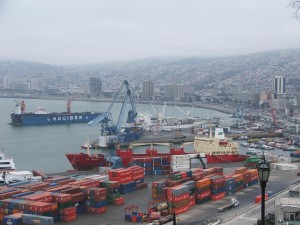by Sarah Walton
On April 17, 2015, the Fourth Circuit issued a published opinion in World Fuel Services Trading, DMCC v. Hebei Prince Shipping Co., Ltd. The court held that World Fuel Services Trading, DMCC (“DMCC”) could assert a maritime lien on marine fuel supplied to a vessel owned by Hebei Prince Shipping Company Limited (“Hebei Shipping”).
Origins of the Dispute
Hebei Shipping owned a vessel registered in Hong Kong and leased its interest to Tramp Maritime Enterprises (“Tramp Maritime”), a Greek corporation. In October 2012, Tramp Maritime asked Bunkerfuels Hellas (“Bunkerfuels”), a division of DMCC, to deliver marine fuel to the vessel while it was docked in the United Arab Emirates. Bunkerfuels received the request and transmitted a confirmation notice. The notice listed the seller as “Bunkerfuels, DBA/Division of WFS Trading, DMCC.” The confirmation notice stated, in pertinent part, that:
“BUYER IS PRESUMED TO HAVE AUTHORITY TO BIND THE [VESSEL] WITH A MARITIME LIEN. DISCLAIMER STAMPS PLACED BY [VESSEL] ON THE BUNKER RECEIPT WILL HAVE NO EFFECT AND DO NOT WAIVE THE SELLER’S LIEN. THIS CONFIRMATION IS GOVERNED BY AND INCORPORATES BY REFERENCE SELLER’S GENERAL TERMS AND CONDITIONS IN EFFECT AS OF THE DATE THAT THIS CONFIRMATION IS ISSUED.”
The fuel provider delivered the marine fuel and the vessel’s chief engineer signed the delivery confirmation. DMCC subsequently sent an invoice to Tramp Maritime for the marine fuel. When the invoice remained unpaid, DMCC brought an in rem action in the District Court for the Eastern District of Virginia. DMCC alleged that it could enforce its maritime lien under the Federal Maritime Lien Act (“FMLA”) and demanded payment of $809,420.50 for the marine fuel. The FMLA provides guidelines for when maritime liens arise and is generally more favorable to sellers than similar laws in other countries.
The District Court Grants Summary Judgment in Favor of DMCC
The parties filed competing motions for summary judgment. Hebei Shipping’s motion alleged, among other things, that (1) Greek law should govern the dispute, (2) the confirmation notice did not incorporate the General Terms and Conditions (“General Terms”) of DMCC’s parent company, World Fuel Services (“World Fuel”), that DMCC sought to rely upon, and (3) because the confirmation notice did not incorporate the General Terms, DMCC could not enforce a maritime lien under the FMLA. The district court, applying Greek law, granted summary judgment for DMCC. On appeal, Hebei Shipping raised identical arguments to its contentions on summary judgment.
Greek Law Applies to the Dispute
Hebei Shipping contended that the district court misapplied Greek law. In response, DMCC argued that the district court should have applied US law. Before reaching the merits of Hebei Shipping’s arguments, the Fourth Circuit noted that US contract law and Greek contract law did not substantially differ on the issues before the court. Thus, it elected to follow the district court’s analysis and apply Greek law.
The Confirmation Notice Encompassed World Fuel Services’ General Terms
Hebei Shipping, seeking to avoid enforcement of World Fuel’s choice of law provision contained in the General Terms, argued that the confirmation notice did not encompass the General Terms. The confirmation notice incorporated the General Terms by reference, and the Fourth Circuit noted that Greek law permits incorporation of terms by reference. As a result, the court concluded that the confirmation incorporated the General Terms and thereby bound Hebei Shipping to these additional requirements.
The FMLA Governs This Dispute
After concluding that World Fuel’s General Terms applied to this dispute, the Fourth Circuit next addressed whether the choice of law provision in the General Terms mandated enforcement of the FMLA. The choice of law provision read that “General Maritime Law of the United States” governed transactions under the General Terms. Hebei Shipping argued that “General Maritime Law of the United States” included maritime case law, but not maritime statutory law. The Fourth Circuit, without deciding the merits of Hebei Shipping’s argument, turned to a provision in the General Terms that stated that if General Maritime Law is silent on an issue, Florida law applies. The Fourth Circuit concluded that because Florida law must include both case law and statutory law, the FMLA governed this dispute. As a result, DMCC could enforce its lien under the terms of the FMLA.
Fourth Circuit Affirms District Court’s Ruling
The Fourth Circuit affirmed the district court’s grant of summary judgment to DMCC, holding that DMCC could enforce its maritime lien under FMLA.

